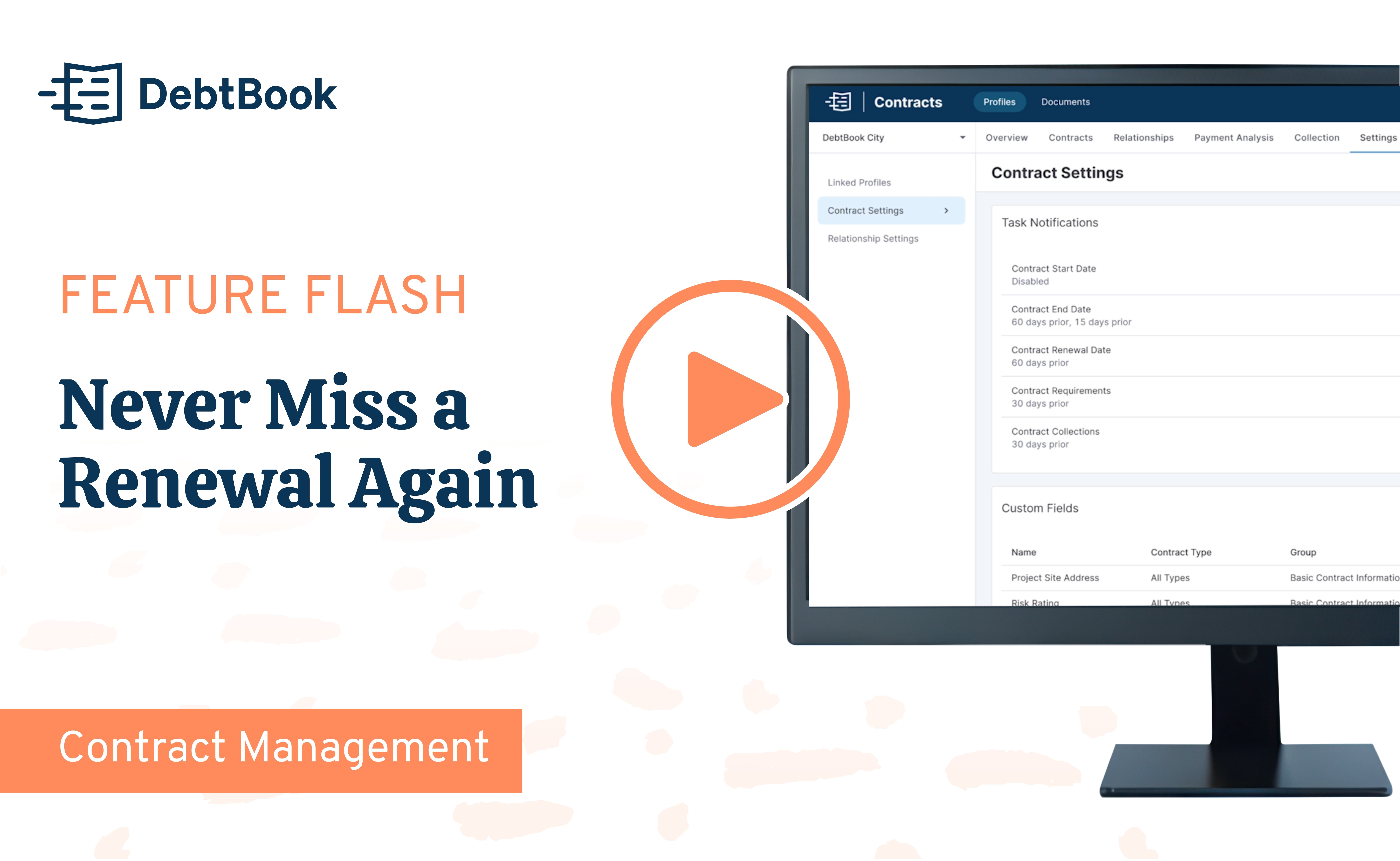Implementing GASB 87 and GASB 96 has been a major undertaking for many organizations. Now that your team has one year of GASB 87 compliance under their belt and is working through GASB 96, it may feel like the project is over, but it is important to realize these GASB standards will remain prevalent for years to come.
Ongoing compliance with the GASB 87 and GASB 96 standards is just as important as the initial implementation. In this article, we will walk through some best practices on how to remain compliant going forward, and how DebtBook can help make this process easy and efficient.
1. New or Amended Agreements
It is likely your organization enters into new lease/subscription agreements, amends current lease/subscription agreements, or terminates active lease/subscription agreements each year. Even if your organization had very few agreements initially qualify under the standard, it is critical that your team has a process in place to analyze each new agreement/amendment to determine if it is applicable to GASB 87 or GASB 96. Your auditors will continue to examine your organization’s agreements, and it is important your team has a process in place to ensure ongoing compliance.
DebtBook allows you to make updates as changes occur and keep a historical record for audit purposes.
2. Applicability of GASB Standards
Due to the nature of GASB 87 and GASB 96, it is important to communicate with the different departments within your organization to identify any potential new lease or subscription agreements or amendments. Even if an agreement does not qualify under GASB 87 or GASB 96, you will need to provide evidence to your auditors on how that determination was made.
In DebtBook, we capture all of these determination questions in the details of every agreement, and you are able to track those non-qualifying agreements to maintain your entire population of agreements in the application for your team and your auditor. Since you will go through this audit process once a year, it is important to build and have access to your historical record of leases and subscriptions.
3. Determining Materiality
Any new lease agreements or subscription-based IT arrangements you enter into will have to be assessed for materiality.
With DebtBook, you can easily input the lease or subscription and see the present valued beginning asset and liability balances, which will help you determine if the agreement is material or not. If the agreement is not material, you can simply change the materiality to “immaterial” in the application. When your auditors review your lease and subscription information, they will see this detail and you will be able to justify your stance.
It is also important to consider materiality in aggregate, not necessarily just on a contract-by-contract basis. For example, you may enter into lease agreements for ten new copiers. Individually, these payments and corresponding asset/liability balances may not reach your materiality threshold, but when these values are viewed in aggregate the total value may qualify as material for your organization. As always, it is important to set expectations with your auditor and involve them in discussions around your entity’s materiality threshold and how this is applied to your lease and subscription agreements.
Managing your leases and SBITAs in a centralized location or GASB 87 software can improve the audit experience for you and your auditor. When it's time to show your auditor invoices, agreements, or schedules with the required incremental borrowing rate, your team will be equipped to meet all of your auditor's requests.
To learn more about how you can simplify ongoing compliance for GASB 87 and GASB 96 with DebtBook, schedule a demo today.
Related Reading & Resources:
- GASB 96
- GASB 87
Disclaimer: DebtBook does not provide professional services or advice. DebtBook has prepared these materials for general informational and educational purposes, which means we have not tailored the information to your specific circumstances. Please consult your professional advisors before taking action based on any information in these materials. Any use of this information is solely at your own risk.





.jpg)

.jpg)